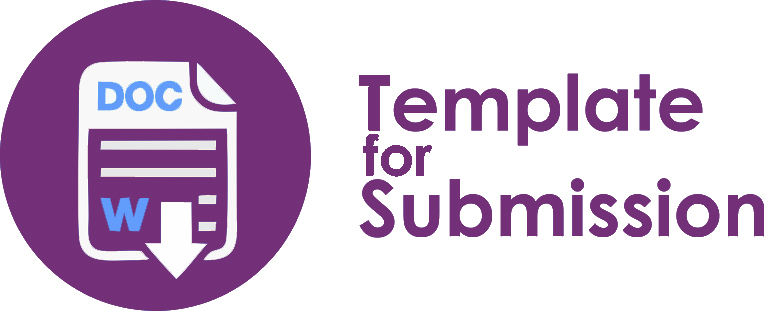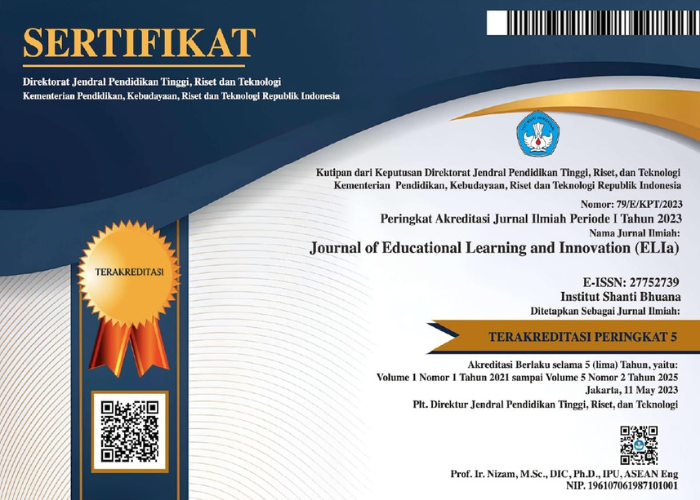MEMBONGKAR MITOS KETANGGUHAN MELALUI REFLEKSI
Abstract
Pandemi COVID-19 telah mengganggu pendidikan secara global, dengan menghancurkan bagi belajar dan kehidupan anak-anak; Salah satunya adalah hancurnya ketangguhan siswa. Ketangguhan memberdayakan orang untuk menerima dan beradaptasi dengan situasi buruk dan beradaptasi dengan pengalaman hidup yang sulit atau menantang. Ketangguhan adalah kemampuan untuk menahan kesulitan dan bangkit kembali dari peristiwa kehidupan yang sulit. Ketangguhan dapat dipelajari, membangun ketangguhan adalah proses di mana orang menjadi lebih baik dalam membingkai ulang pola pikir dan memanfaatkan pendekatan berbasis kekuatan untuk bekerja melalui rintangan. Namun dalam praktek, kita direcoki dengan mitos yang berbahaya tentang ketangguhan itu sendiri; Mitos itu berbahaya karena 5 alasan utama: biasanya diadakan, sering dinyatakan sebagai dikotomi, terkadang mengandung benih kebenaran, membenarkan perilaku; dan sering dilembagakan, maka perlu dibongkar. Refleksi adalah cara yang dianggap tepat; Permasalahan dalam kajian ini adalah: Apa saja mitos ketangguhan diri siswa, Apakah strategi refleksi diri dapat membongkar mitos ketangguhan dan apa saja yang perlu dilakukan sebagai tindak lanjut terbongkarnya mitos dalam era new normal. Penelitian ini didasarkan pada metode literatur review dengan menerapkan 7 langkah. Sumber Informasi utama dari 2 artikel jurnal dan 7 publikasi Situs web yang menyediakan akses siap ke informasi dari semua jenis: Teridentifikasinya sejumlah 24 mitos ketangguhan yang berbahaya. Dari 24 mitos dilakukan refleksi untuk membongkar 8 mitos teratas. Terumuskannya model Systematic Self-Reflection yang baru; dimana penulis menambahkan dengan “membongkar mitos ketangguhan” pada “sistem kepercayaan yang tangguh - bebas peran/ pengaruh mitos”, sehingga model ini merupakan solusi yang lebih cerdas, strategis dan inventif bahkan berdampak, teristimewa di era pasca covid 19 ini.
References
Aguilar, E. (2018). Debunking Myths About Resilience. Https://Www.Edutopia.Org/Article/.
Beckford, A. (2016). How to Make Decisions Better: Analyzing Information. Https://Theinvisible Mentor.Com/.
Borba, M. (2022). Help Your Kids Thrive By Debunking These Myths About Resilience. Https://Www. Psycho-Logy¬today.Com/Us/Blog/Nurturing-Resilience/200910/.
Cherry, K. (2022). Characteristics of Resilient People. Https://Www.Verywellmind.Com/Characteristics-of-Resilience-2795062. https://www.verywellmind.com/characteristics-of-resilience-2795062
Claxton, G. (2021). 8 myths holding back innovation in teaching. World Education Summit, 6–11. https://www.tes.com/news/teachers-schools-education-world-education-summit-8-myths-holding-back-future-teaching-innovations
Crane, M. F., Searle, B. J., Kangas, M., & Nwiran, Y. (2019). How resilience is strengthened by exposure to stressors: The systematic self-reflection model of resilience strengthening. Anxiety, Stress and Coping, 32(1), 1–17. https://doi.org/10.1080/10615806.2018.1506640
Dictionary.com, Y. (2022). myth.
Elfers, R. (2021). The myth of child resiliency | In Focus. Https://Www.Courierherald.Com/Opinion/.
Estatoora. (2021). Top 4 Known Myths About Resilience to Debunk Today. Https://Course. Estatoora.Com/Topic/.
Fergus, S., & Zimmerman, M. A. (2005). Adolescent resilience: A framework for understanding healthy development in the face of risk. Annual Review of Public Health, 26(February 2005), 399–419. https://doi.org/10.1146/annurev.publhealth.26.021304.144357
Fridman, L. (2016). Why Is It So Easy to Cultivate And Support Myths And False Models In Education? (An Answer).
Gagné, F.(2005). From Noncompetence to Exceptional Talent: Exploring the Range of Academic Achievement Within and Between Grade Levels. Gifted Child Quarterly, Vol 49 No 2
Gagné, F. (2007). Ten Commandments for Academic Talent Development. Gifted Child Quarterly, Vol 51.
Gibbs, G. (1988). Learning by doing. In Instructional-Design Theories and Models: A New Paradigm of Instructional Theory. Creative Commons. https://doi.org/10.4324/9781410603784-14
Gillett, A., Hammond, A., & Martala, M. (2009). Successful academic writing. In Inside track. Pearson Education Limited. http://search.ebscohost.com/login.aspx?direct=true&db=cat00289a&AN=hwu.197629&site=eds-live
Greene, J. P. (2005). Education Myths: Without Reliable Information It’s Difficult To Make Good Policy Decisions. Society For Quality Education Forum, 16–18.
IAD. (2021). Reflection: What is it and why is it useful ? Reflection: What Is It and Why Is It Useful? www.ed.ac.uk/iad/undergraduate
Jo. (2016). Debunking the Myths about Accelerated Education. Https://Www.Brookfieldschool.Org/ Ourpages/Auto/2016/7/20/42856345/.
Kolb, D. A. (1984). Experiential Learning: Experience as The Source of Learning and Development. Prentice Hall, Inc., 1984, 20–38. https://doi.org/10.1016/B978-0-7506-7223-8.50017-4
Paper.co. (2022). Addressing unfinished learning: 5 common myths, debunked.
Pears, K. (2022). Myths about resilience: Busted. https://Kidsintransitiontoschool.Org/.
Smeru. (2022). The COVID-19 Pandemic and Learning Loss. Https://Smeru.or.Id/En/Research/ Covid-19-Pandemic-and-Learning-Loss.
Ungar, Michael. (2009). Debunking the myth of the rugged, and resilient, individual.https://www. psycho-logy¬today.com/us/blog/nurturing-resilience/200910/
Ungar, Michael & Hamstra, Micky. (2022). Acceleration Myth vs. Fact. Center for Gifted Studies and Talent Development Ball State University
University of Cambride, 2022. Reflective Practice Toolkit. https://libguides.cam.ac.uk/
University of Guelph, 2021. Write a Literature Review. https://guides.lib.uoguelph.ca/c.php?g= 130964&p=5000948
University of Guelph, 2022. Write a Literature Review. https://guides.lib.uogueslph.ca/
Vu, B. T., & Savonitto, I. S. 2020. Building back better: Education systems for resilience, equity and quality in the age of Covid-19. World Bank.
Winona State University. 2022. Common Myths about Resilience. https://www.winona.edu/ resilience/
World Bank, the Bill & Melinda Gates Foundation, FCDO, UNESCO, UNICEF, and USAID. 2022. Guide for Learning Recovery and Acceleration: Using the RAPID Framework to Address COVID-19 Learning Losses and Build Forward Better. Washington, DC: World Bank.
Watson, A. (2019). 4 myths about great teaching debunked. Https://Thecornerstone-Forteachers.Com/ Truth-for-Teachers-Podcast/.
Copyright (c) 2023 Slameto, Pebria Dheni Purnasari, Yosua Damas Sadewo, Totok Victor Didik Saputro, Mickael Febrianto Owen

This work is licensed under a Creative Commons Attribution 4.0 International License.
Journal of Educational Learning and Innovation (ELIa)
Authors who publish with Journal of Educational Learning and Innovation (ELIa) agree to the following terms:
- Authors retain copyright and grant the journal right of first publication with the work simultaneously licensed under a Creative Commons Attribution License that allows others to share the work with an acknowledgement of the work's authorship and initial publication in this journal.
- Authors are able to enter into separate, additional contractual arrangements for the non-exclusive distribution of the journal's published version of the work (e.g., post it to an institutional repository or publish it in a book), with an acknowledgement of its initial publication in this journal.
- Authors are permitted and encouraged to post their work online (e.g., in institutional repositories or on their website) prior to and during the submission process, as it can lead to productive exchanges, as well as earlier and greater citation of published work (See The Effect of Open Access).













